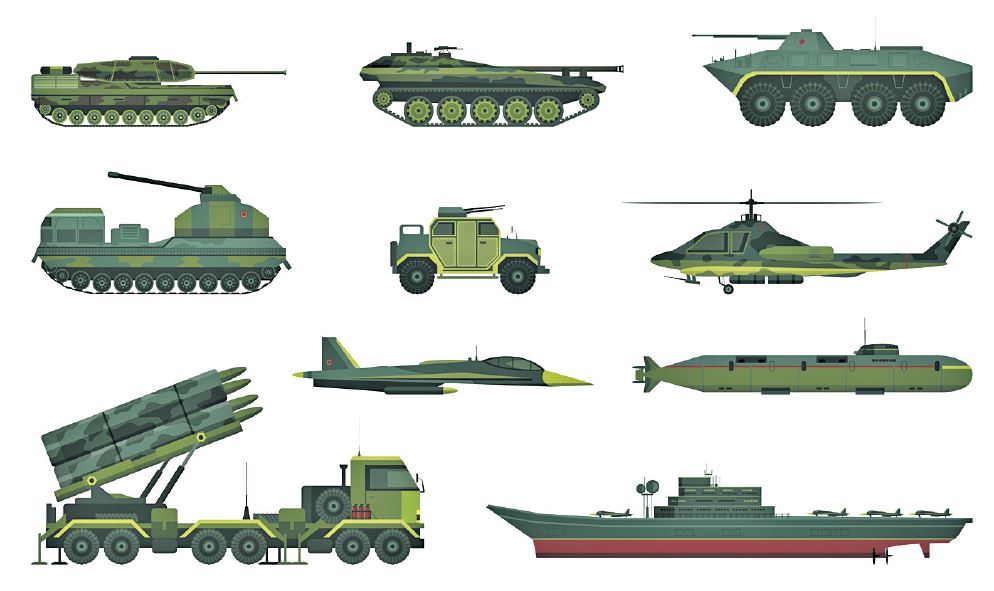Defence entrepreneurship can lead to a stronger, more adaptive and technologically advanced sector
Updated On – 25 March 2024, 03:14 PM

The contribution of the defence sector to the nation is indispensable and we owe our very best energies to it. Yet, in the entrepreneurial world, conversations about defence are infrequent, scattered and staggered. While there is a lot of talk about businesses contributing to the nation, there needs to be talk about how entrepreneurship can enrich specific components of nation- building, defence being one of them.
The avenues for the same are many as entrepreneurship within the defence sector can involve various aspects, such as developing innovative technologies for defence systems, creating cybersecurity solutions, supplying specialised equipment or providing consulting services for strategic planning. It indubitably requires a deep understanding of defence needs, compliance with regulations, and a focus on security and efficiency. Let us look at these propositions and ideas in some detail.
Agile Startups
Entrepreneurship for defence is not just something which should be an ethical imperative for citizens but also an actual necessity. Businesspersons can make all the difference when it comes to equipping the defence forces with the best. Encouraging more entrepreneurial activity in this domain can make things infinitely better for all stakeholders as startups tend to be generally more agile and adaptable than larger contractors. They are able to quickly pivot to address emerging threats or evolving defence needs, implementing solutions efficiently without the bureaucracy often associated with larger organisations. Furthermore, several defence startups can also specialise in niche areas, focusing on particular technologies or solutions. This specialisation can enable them to emerge as formidable experts in their field and deliver highly unique products or services tailored to specific defence requirements.
Startups, in a particularly beneficial way, can also offer cost-effective solutions compared to established defence companies. Their favourable aspects include streamlined operations and innovative approaches which can provide cost savings for defence agencies while delivering high-quality products. Startups do particularly well in cycles of rapid prototyping and development, allowing for fast and frequent iterations as well as testing of new technologies or concepts. This fast pace of innovation can prove instrumental in addressing emerging threats or adapting to capricious defence landscapes.
Strategising, Specialisation
Essentially, an entrepreneurial push into the defence sector requires strategising and a clear understanding of the market. There is a need to appraise the specific requirements, gaps, and emerging trends within the industry and identify areas where innovation or improvement is required. Simultaneously, it is necessary to look for niches or areas where an entrepreneurial venture can offer unique solutions or products, and it could involve a wide range of areas such as cybersecurity, optimisation of logistics and artificial intelligence- driven defence systems.
Specialisation is a keyword when we think of how defence entrepreneurship encompasses several domains. Startups working in cybersecurity can employ advanced encryption methods, develop threat detection systems, secure communication platforms and software solutions to protect sensitive information from cyber threats. Companies focusing on drone technology can design and manufacture unmanned aerial vehicles (UAVs) with enhanced capabilities for reconnaissance, surveillance or combat purposes, massively enhancing military intelligence as well as operations.
Simultaneously, startups engaged in material sciences can create better materials for armour, protective gear or vehicle components, providing protection and durability for military personnel and equipment. Entrepreneurs leveraging artificial intelligence and machine learning can create systems that analyse tremendous amounts of data for important processes like predictive analysis or optimising crucial defence operations such as maintenance for military hardware. Some startups, may, in fact, focus on biotechnology to develop advanced medical solutions, including trauma care, pharmaceuticals and treatment of wounds to address particular requirements of military healthcare.
These specialised areas demonstrate how defence entrepreneurship ventures can cater to various specific needs within the sector, offering innovative, creative and unprecedented solutions to enhance security and effectiveness in military operations.
However, as entrepreneurs who are willing to step into this world, we must also be cognizant of the challenges inherent in such a venture. Strict regulations and compliance standards in the defence industry can create barriers for startups, mandating staunch adherence to complex procurement processes, security clearances as well as stringent quality control measures.
It is noteworthy that defence contracts often involve lengthy sales cycles due to the complex nature of negotiations, evaluations, and approvals within government agencies and defence organisations as well. This extended timeframe can easily strain the resources for startups, particularly the newer and smaller ones. It is important to not forget that developing defencerelated technologies or solutions necessitates substantial initial investment. Securing funding for research, development and compliance can be a gruelling task for startups, especially when competing against established contractors.
Overcoming Hurdles
On a related note, accessing the defence market can be particularly daunting for newcomers. Established defence contractors tend to rule over the market, making it challenging for new startups to enter the fray and gain the trust of defence agencies. Reliance on contracts for revenue can lead to vulnerability if contracts are delayed, cancelled or not renewed, affecting the stability and growth of defence startups and, therefore, sustained dialogue with stakeholders is necessary.
Finally, maintaining security standards is paramount in the sector and startups must invest significantly in ensuring the confidentiality, integrity and security of their products, technologies and data, which can be both expensive and challenging. Balancing the protection of intellectual property while collaborating with government entities or larger defence contractors can be difficult as well.
These hurdles can be overcome with planning, collaboration and a deep understanding of the defence sector. Despite these difficulties, we must remember that enhanced technological capabilities and innovative solutions resulting from defence entrepreneurship bolster and galvanise national security by providing robust defence systems and strategies. Defence entrepreneurship also fosters and consolidates economic growth by generating employment opportunities, supporting technological advancements and catalysing the development of related industries, thereby boosting the overall economy. It also facilitates collaboration between startups, established defence firms, eminent research institutions as well as government agencies. These incredible partnerships can lead to knowledge-sharing, transfer of technology and collaborative efforts that can benefit the entire defence ecosystem at once.
Defence entrepreneurship can, therefore, lead to a stronger, more adaptive and technologically advanced defence sector, benefiting both national security and the broader economy. It is our turn to let our business acumen translate into benefits for those who protect our nation and hold our glory and pride.

(The author is Founder & CEO, Upsurge Global, Advisor & Adjunct Professor, EThames College, and Strategic Advisor and Venture Partner, SilverNeedle Ventures)




